Cell Reproduction -> potassium
Potassium
Potassium is a chemical element with the symbol K and atomic number 19. It is a soft, silvery-white alkali metal that is highly reactive and is found in compounds such as potassium chloride (KCl) and potassium hydroxide (KOH). Potassium is essential for various biological processes in the human body, including muscle function, nerve signaling, and maintaining fluid balance.
Physical and Chemical Properties
- Atomic number: 19
- Atomic symbol: K
- Atomic mass: 39.10 u
- State at room temperature: Solid
- Boiling point: 759°C (1,398°F)
- Melting point: 63.5°C (146.3°F)
- Highly reactive with water
Uses of Potassium
Potassium has several important uses in various industries and applications:
- Agriculture: Potassium compounds such as potassium chloride are widely used as fertilizers to promote healthy plant growth and improve crop yields.
- Health and Medicine: Potassium supplements are used to treat or prevent low levels of potassium in the blood, a condition known as hypokalemia.
- Food Industry: Potassium compounds are used as food additives, preservatives, and nutrient supplements in various food products.
- Industrial Processes: Potassium compounds are used in the production of glass, soaps, and detergents.
Biological Importance
Potassium plays a crucial role in maintaining the body's overall health and function:
- Electrolyte Balance: Potassium, along with sodium, helps maintain the body's electrolyte balance, which is essential for proper muscle and nerve function.
- Heart Function: Potassium is vital for maintaining normal heart rhythm and function. A deficiency in potassium can lead to irregular heartbeats and other cardiac issues.
- Fluid Balance: Potassium helps regulate the body's fluid balance, which is important for maintaining healthy blood pressure and kidney function.
- Muscle Contraction: Potassium ions are involved in the process of muscle contraction, making it essential for muscle function and movement.
Study Guide
Here are some key points to remember about potassium for your study guide:
- Atomic number of potassium: 19
- Potassium symbol: K
- Physical state at room temperature: Solid
- Biological importance: Essential for muscle function, nerve signaling, and maintaining fluid balance
- Uses: Agriculture, health and medicine, food industry, industrial processes
Understanding the properties, uses, and biological importance of potassium is essential for gaining a comprehensive knowledge of this important element.
.◂Science Worksheets and Study Guides Seventh Grade. Cell Reproduction
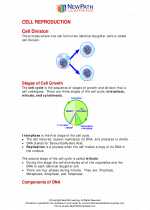
 Activity Lesson
Activity Lesson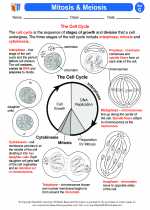
 Worksheet/Answer key
Worksheet/Answer key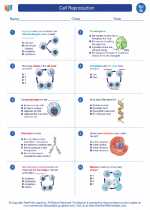
 Worksheet/Answer key
Worksheet/Answer key
 Worksheet/Answer key
Worksheet/Answer key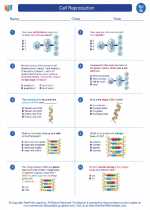
 Vocabulary/Answer key
Vocabulary/Answer key
 Vocabulary/Answer key
Vocabulary/Answer key
 Vocabulary/Answer key
Vocabulary/Answer key
 Vocabulary/Answer key
Vocabulary/Answer key
 Vocabulary/Answer key
Vocabulary/Answer key
 Vocabulary/Answer key
Vocabulary/Answer key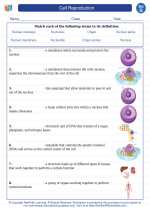
 Vocabulary/Answer key
Vocabulary/Answer key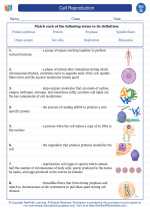
 Vocabulary/Answer key
Vocabulary/Answer key
